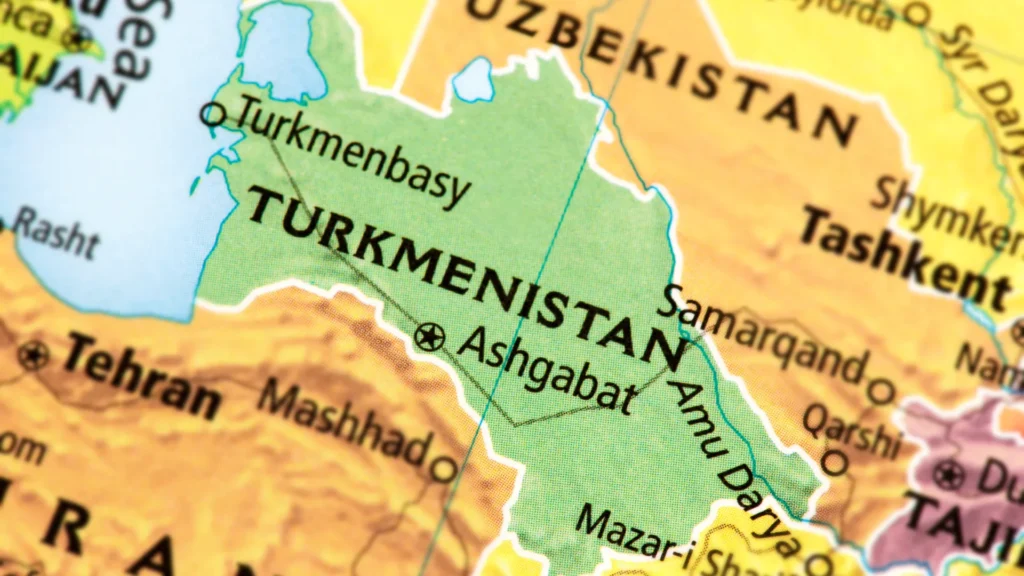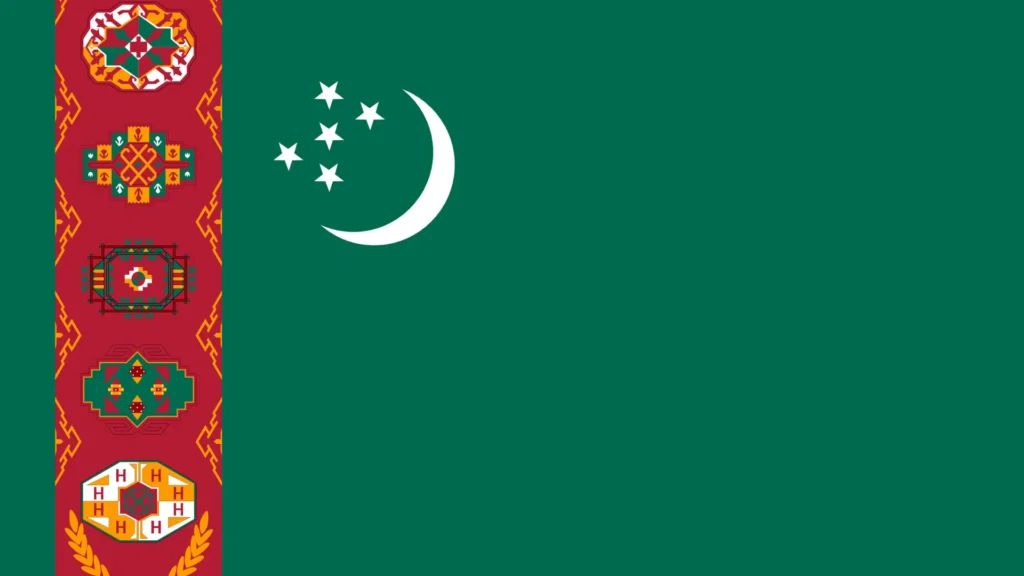Delta Medical in Turkmenistan

Strategically located at the crossroads of ancient trade routes, Turkmenistan’s economy has traditionally relied on its vast energy resources and agricultural exports. However, the government has prioritized diversifying the economy and improving healthcare access for its citizens.
Under the National Program for Health launched in 2007, Turkmenistan has invested in modernizing medical infrastructure, training personnel, and promoting preventive care. The state-run healthcare system overseen by the Ministry of Health and Medical Industry has made notable progress, reducing infant mortality, increasing vaccination rates, and expanding healthcare facilities like the state-of-the-art Ashgabat International Medical Center.
Turkmenistan’s pharmacy retail market has undergone transformations driven by evolving consumer demands and government policies. While state-owned pharmacies dominate, the market faces challenges such as import dependency, regulatory constraints, and emerging trends like growing interest in natural remedies.
Turkmenistan is relatively small, but its dynamic healthcare landscape is growing due to natural gas export revenue. Gradually, this should lead to larger government purchasing of innovative medicines.
Delta Medical, a leading Swiss pharmaceutical company, works in Turkmenistan and throughout Eurasia. We help multinationals explore these growing markets, and to work not only in the capital city of Ashgabat, but throughout Turkmenistan.
Table: Top Cities in Turkmenistan
| Rank | City | Population |
| 1 | Ashgabat | 803,000 |
| 2 | Turkmenabat | 249,000 |
| 3 | Dashoguz | 206,000 |
| 4 | Mary | 120,000 |
| 5 | Balkanabat | 90,000 |
Turkmenistan’s Healthcare System
Turkmenistan, a Central Asian nation known for its vast gas reserves and unique culture, has been working to improve its healthcare system in recent years. Despite challenges, the country has made strides in providing accessible medical care to its population of over 6 million people.

Healthcare Structure and Funding in Turkmenistan
Turkmenistan’s healthcare system is primarily state-run, with the Ministry of Health and Medical Industry overseeing medical services and facilities. The government provides free basic healthcare to all citizens, funded through the state budget. Private medical practice is allowed but remains limited, with most people relying on the public system.
The country has a network of hospitals, clinics, and health centers across its five provinces and the capital city of Ashgabat. Primary care is provided through polyclinics, while specialized care is available at regional and national hospitals. Turkmenistan also has several medical universities and training institutes to educate healthcare professionals.

Healthcare Reforms and Initiatives
In recent years, Turkmenistan has implemented various reforms and initiatives to modernize its healthcare system:
- In 2007, the government launched the National Program for Health, aimed at improving medical infrastructure, training healthcare workers, and promoting healthy lifestyles.
- Turkmenistan has invested in constructing new hospitals and clinics, equipping them with modern medical technology. For example, the Ashgabat International Medical Center, opened in 2018, is a state-of-the-art facility offering advanced treatments.
- As have many Central Asian countries, Turkmenistan has focused on maternal and child health, implementing programs to reduce infant and maternal mortality rates. This includes providing free prenatal care and expanding the network of maternity hospitals.
- Turkmenistan has also prioritized preventive care, launching public health campaigns to promote vaccination, healthy eating, and physical activity.
Successes and Achievements
Turkmenistan’s healthcare reforms have yielded some notable successes:
- The country has significantly reduced infant and maternal mortality rates over the past two decades. Between 2000 and 2019, the infant mortality rate decreased from 58.4 to 39.3 per 1,000 live births.
- Turkmenistan has achieved high vaccination coverage, with over 95% of children immunized against diseases like measles, polio, and diphtheria.
- Life expectancy has increased, reaching 68.2 years in 2019, up from 63.8 years in 2000.
- The country has expanded access to healthcare, with the number of hospital beds per 10,000 people increasing from 40.5 in 2000 to 44.1 in 2018.

Challenges and Areas for Improvement
Despite progress, Turkmenistan’s healthcare system still faces several challenges:
- While basic healthcare is free, patients often have to pay out-of-pocket for medications, which can be a financial burden.
- The quality of care varies, with some rural areas lacking access to specialized services and modern equipment.
- Turkmenistan has a shortage of healthcare professionals, particularly in rural regions. The country has been working to train more doctors and nurses, but retention remains an issue due to low salaries and limited career opportunities.
- The country’s emphasis on grandiose construction projects has sometimes come at the expense of investing in basic healthcare infrastructure and supplies.
Pharmacy Retail Market in Turkmenistan
The pharmacy retail market in Turkmenistan has experienced significant transformations in recent years, shaped by government policies, economic factors, and evolving consumer preferences. As the nation continues to invest in its healthcare infrastructure and domestic pharmaceutical industry, it is essential to analyze the current landscape of the pharmacy retail sector and its future prospects.
Market Structure and State Dominance
Turkmenistan’s pharmacy retail market is primarily characterized by the prominence of state-owned pharmacies, operating under the purview of the Ministry of Health and Medical Industry. These pharmacies are tasked with dispensing prescription medications and providing essential over-the-counter drugs to the population. Private pharmacies have a limited presence, mainly concentrated in larger cities such as Ashgabat.
The pharmaceutical supply chain in Turkmenistan is highly centralized, with the state-owned enterprise “Turkmendermansenagat” playing a pivotal role in the production, import, and distribution of medicines. This centralized approach enables the government to exert strict control over the availability and pricing of medications throughout the country.

Domestic Pharmaceutical Production and Import Dependency
- Turkmenistan has prioritized the development of its domestic pharmaceutical industry to reduce reliance on imports and enhance access to medications.
- The government has invested in modernizing existing pharmaceutical plants and establishing new production facilities, such as the “Saglyk” pharmaceutical enterprise, which manufactures a diverse range of medications, including:
- Antibiotics
- Painkillers
- Treatments for cardiovascular, liver, kidney, and gastrointestinal diseases
- Turkmenistan has fostered collaborations with foreign pharmaceutical companies through joint ventures, such as the “Turkmenderman-Ajanta Pharma Limited” partnership, aimed at producing high-quality, affordable generic medications for the domestic market and potential export.
Despite these efforts, Turkmenistan’s pharmaceutical market remains heavily dependent on imports, accounting for over 90% of the available medications. This reliance on imports exposes the market to vulnerabilities associated with currency fluctuations and foreign exchange shortages, which have impacted the ability of pharmaceutical companies to import medications, leading to drug shortages and price increases.
Regulatory Landscape and Pricing Challenges
The Turkmenistan government plays a crucial role in regulating the pharmacy retail market, encompassing the registration, pricing, and advertising of medications. Key regulatory aspects include:
- Prohibition of advertising: In 2016, Turkmenistan introduced a law banning the advertisement of medicines, dietary supplements, and infant formula in media outlets, with exceptions for specialized publications targeting healthcare professionals. This measure aims to prevent inappropriate promotion and safeguard public health.
- Price regulation: The government regulates medication prices to ensure affordability and accessibility for the population. However, fixed prices and limited profit margins have occasionally disincentivized pharmacies and distributors from stocking certain medications, resulting in shortages and access issues.
Emerging Market Trends and Consumer Preferences
Turkmenistan’s pharmacy retail market has witnessed notable trends driven by shifting consumer preferences and government initiatives:
- Growing interest in natural and herbal remedies: Consumers are increasingly seeking traditional medicines alongside conventional pharmaceuticals, prompting pharmacies to expand their offerings of herbal teas, supplements, and natural health products.
- Focus on preventive care and healthy lifestyles: The government has been promoting initiatives to reduce risk factors for non-communicable diseases, such as tobacco use, excessive alcohol consumption, unhealthy diets, and physical inactivity. This has fueled demand for health maintenance products, including vitamins, minerals, and dietary supplements.
Explore Turkmenistan’s Healthcare Market with Delta Medical
Entering Turkmenistan’s pharmaceutical market requires an in-depth understanding of the country’s unique challenges and opportunities. As an international company seeking to enter or expand in this market, partnering with a trusted and experienced local partner like Delta Medical can be the key to success.
Delta Medical, a leading Swiss pharmaceutical company, offers a comprehensive range of services to help businesses thrive in Turkmenistan’s healthcare sector. With expertise in product registration, distribution, and marketing, Delta Medical can provide the support and guidance needed to comply with regulatory requirements set by bodies like the Ministry of Health and Medical Industry and the Ministry of Justice.
Through Delta Medical’s extensive network and market knowledge, companies can effectively reach key healthcare institutions such as the State Oncology Scientific and Clinical Center, International Cardiology Center, Gurbanguly Berdimuhamedow Children’s Health and Rehabilitation Center, and the upcoming International Scientific Clinical Center for Oncology, and the International Pediatric Center in Ashgabat.
By leveraging Delta Medical’s commitment to bringing innovative healthcare solutions to the region, companies can confidently navigate Turkmenistan’s pharmacy retail market, contribute to improving the health and well-being of the population, and achieve sustainable growth in this promising market.
We are able to register your products in Turkmenistan, distribute your products in Ashgabat and beyond, and ensure that healthcare professionals have current medical information.
To learn more about how Delta Medical can help your company succeed in Turkmenistan and other CIS markets, contact us today.
Registration of Health Supplements in Turkmenistan
As Turkmenistan’s healthcare sector continues to evolve, the country has established a regulatory framework for…
Medical Device Registration in Turkmenistan
Turkmenistan, a Central Asian nation with a growing healthcare sector, has established a regulatory framework…
Registration of Pharmaceuticals in Turkmenistan
Turkmenistan requires state registration of pharmaceuticals before they can be marketed and sold in the…


